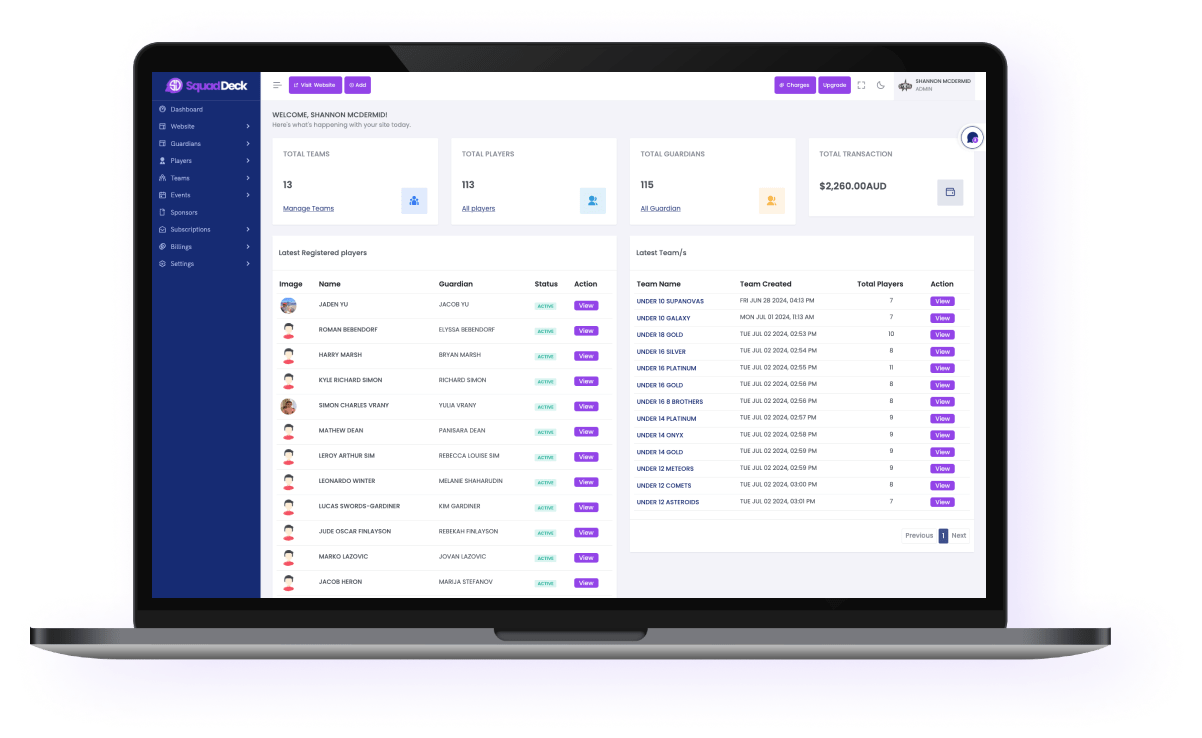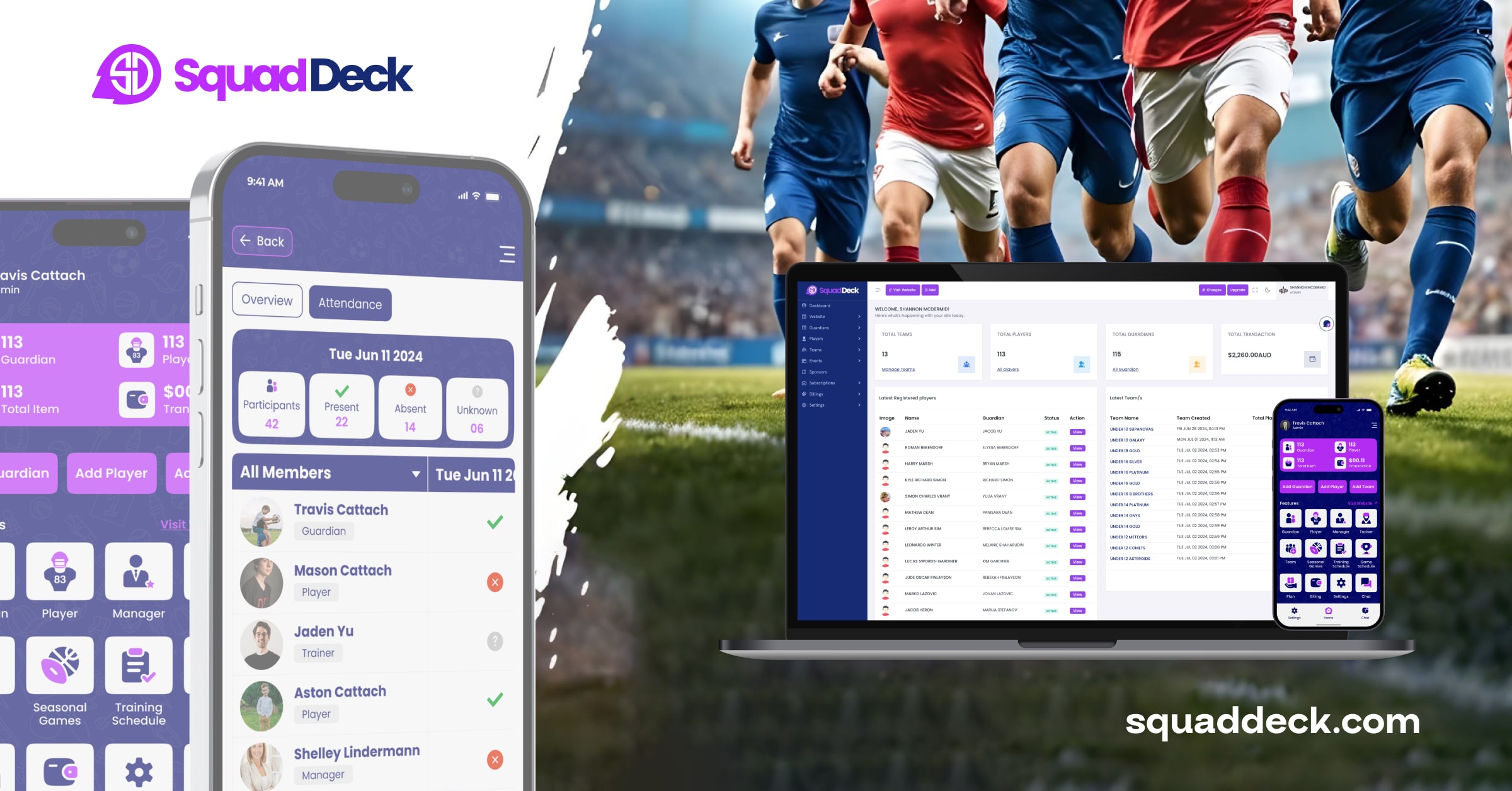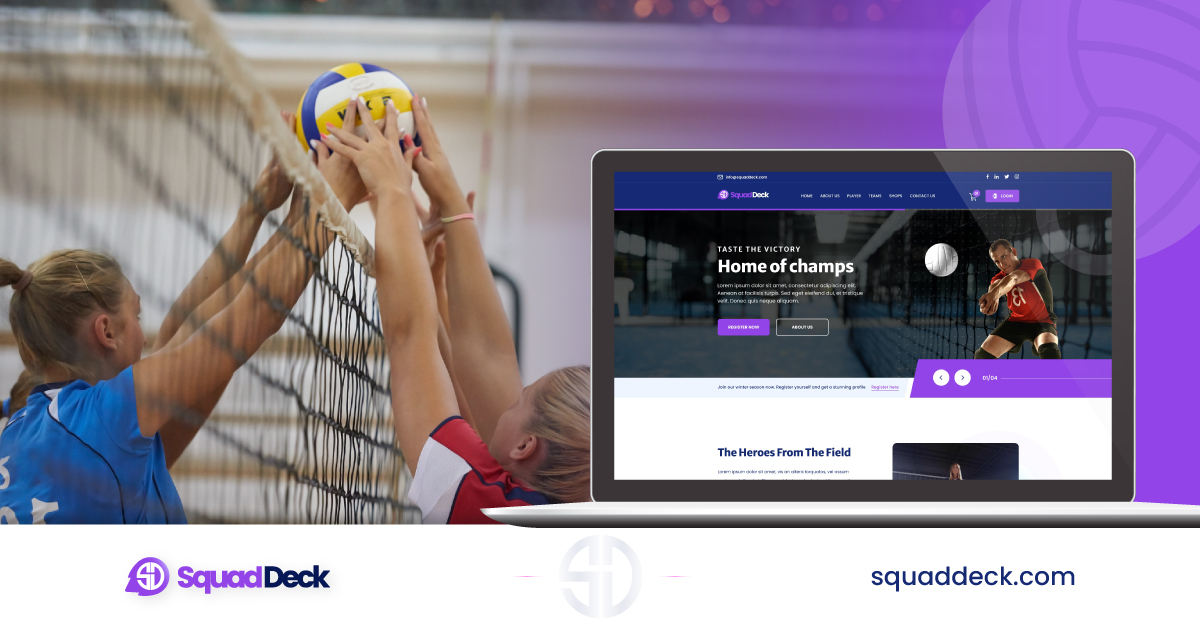How to Avoid Common Scheduling Problems for Sports Leagues and Clubs
Sports leagues and clubs face various scheduling challenges, from coordinating game dates and times to securing access to appropriate venues. This blog post will explore common sports scheduling problems and provide practical solutions to avoid them. Whether managing a professional league or a youth sports club, these tips will help you create an efficient and error-free schedule.
Proper scheduling is critical to the success of any sports organization. Understanding the key issues and leveraging sports scheduling solutions can ensure smoother operations and a better experience for players and fans.
What is Sports Scheduling?
Sports scheduling organizes game dates, times, and locations for a sports league or club. It involves scheduling regular season games, playoffs, and tournaments while coordinating practices, tryouts, and other activities. The goal is to create a fair and efficient schedule accommodating teams, players, venues, and league rules.
Sports scheduling can be complex, with many variables to consider. However, with the right approach and tools, creating a schedule that meets everyone’s needs is possible.

Why is Sports Scheduling Important?
Sports scheduling ensures that teams, players, and fans have the necessary information to plan and attend games. Effective scheduling:
- Reduces conflicts with other events by securing venues in advance.
- Maximizes the use of resources like stadiums and training facilities.
- Promotes fairness by ensuring teams have equal access to desirable game dates and times.
- Increases attendance and revenue by scheduling games conveniently for fans and players.

With the risk of poor attendance, a team can avoid regulation and revenue loss without careful planning. An efficient schedule is a must for a league’s success.
Common Sports Scheduling Problems
Despite the importance of a well-organized schedule, many sports leagues and clubs encounter common problems, including:
1. Conflicts with Other Events Leagues often compete with other events for venue access, leading to double bookings or last-minute changes.
2. Travel Time and Costs Long-distance travel can wear out players and increase costs, leading to lower performance and financial strain.
3. Inadequate Practice and Recovery Time Scheduling games close together can prevent teams from practicing or recovering properly, impacting performance.
4. Weather-Related Disruptions Unexpected weather changes can cause cancellations or delays, requiring a contingency plan for game rescheduling.
5. Inconvenient Game Times for Fans Poorly timed games may result in low attendance. Fans are less likely to attend if games are scheduled at odd hours or inaccessible locations.
6. Uncoordinated Team Schedules Scheduling games without considering team availability can cause unnecessary stress and conflicts within teams, affecting performance.
7. Poor Communication Failing to communicate schedule changes or updates in a timely manner can lead to confusion and frustration among players, coaches, and fans.
How to Avoid Common Sports Scheduling Problems
To avoid these common scheduling mistakes, follow these best practices:
Plan ahead and start scheduling games, practices, and events as early as possible. This allows you to reserve venues and arrange for other logistics in advance.
Communicate Clearly Clear communication is key to avoiding scheduling issues. Use multiple channels such as email, text messages, and social media to keep teams, players, and fans informed of game schedules and changes.
Use Scheduling Software Invest in sports scheduling software like SquadDeck, which can help automate the scheduling process, reducing errors and saving time. SquadDeck enables you to:
- Set and manage game dates and venues.
- Track player availability.
- Automatically notify teams and players of any schedule updates.
Be Flexible. Unexpected conflicts or changes can happen. Always be prepared to adjust schedules when necessary, and remain open to rescheduling games or practices.
Double-check for Conflicts Before finalizing the schedule, review it for any overlapping games or practice sessions and ensure that all teams have access to the necessary venues and equipment.
Stick to the Rules. Follow the league’s rules and regulations, ensuring they are clearly communicated to all teams and players and applied fairly throughout the season.
How SquadDeck Can Help You Avoid Scheduling Problems
SquadDeck offers comprehensive sports management software to help leagues and clubs avoid common scheduling problems. Here’s how SquadDeck can streamline your scheduling process:
1. Automated Scheduling SquadDeck’s automated scheduling feature allows you to create, adjust, and manage game schedules easily, ensuring no conflicts with other events or venues.
2. Team Management With SquadDeck, you can easily manage player information and availability, ensuring that key players are available for games and practices.
3. Communication and Notifications SquadDeck’s built-in communication tools, including email and SMS notifications, help keep everyone informed of changes, preventing confusion and frustration.
4. Venue Management The venue management feature allows you to book and manage venues in advance, ensuring you always have access to the necessary facilities.
5. Mobile App SquadDeck offers a mobile app for quick access to schedules and updates. Players, coaches, and fans can check game times and locations from their phones, making it easier to stay informed.
6. Reporting and Analytics SquadDeck provides detailed reports and analytics, helping you track and identify any scheduling issues or patterns that need to be addressed.
Frequently Asked Questions (FAQs)
Why is scheduling important in sports?
Scheduling is crucial because it ensures that games and practices happen at appropriate times and locations. It allows teams to prepare and compete effectively, reduces conflicts, and enhances fan engagement.
What is the most challenging aspect of sports scheduling?
The most challenging aspect is balancing the needs of all teams, players, and venues involved. Key challenges include coordinating schedules, ensuring fair access to facilities, and dealing with unexpected changes.
What are some common scheduling problems?
Common problems include conflicting event schedules, inadequate practice time, weather disruptions, and poor communication among teams and stakeholders.
Conclusion
Sports scheduling is essential for the smooth operation of any league or club. By understanding common problems and implementing strategies to avoid them—such as using scheduling software like SquadDeck—you can ensure that your league runs efficiently and that your players and fans enjoy a positive experience. You can focus on delivering the best possible season with the right tools.
Call to Action: Learn how SquadDeck can help your sports league or club avoid scheduling issues. Visit SquadDeck or contact us at hello@squaddeck.com. Join our community on social media for the latest updates and insights!



















